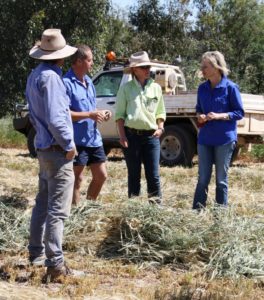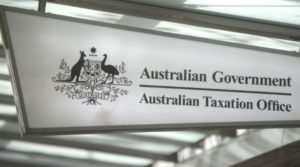Farm Household Allowance
This is the topic on everyone’s lips at the moment but there seems to be some confusion about eligibility. The main change in assistance is that there will now be two lump sum supplementary payments worth up to $12,000 for eligible households. The government has also adjusted the assets threshold to allow more farmers to access support for up to four cumulative years. The Farm Household Allowance gives farmers breathing space to implement plans and seek training, along with offering long-term solutions. Before farmers can receive this allowance, they will need to supply verifying information to ensure they are paid at the right rate. To view the fact sheet, visit http://www.agriculture.gov.au/SiteCollectionDocuments/ag-food/drought/assistance-measures/fha-factsheet.pdf or call the farmer assistance hotline on 132 316.
moment but there seems to be some confusion about eligibility. The main change in assistance is that there will now be two lump sum supplementary payments worth up to $12,000 for eligible households. The government has also adjusted the assets threshold to allow more farmers to access support for up to four cumulative years. The Farm Household Allowance gives farmers breathing space to implement plans and seek training, along with offering long-term solutions. Before farmers can receive this allowance, they will need to supply verifying information to ensure they are paid at the right rate. To view the fact sheet, visit http://www.agriculture.gov.au/SiteCollectionDocuments/ag-food/drought/assistance-measures/fha-factsheet.pdf or call the farmer assistance hotline on 132 316. 
Rural Financial Counselling Service
As part of its drought relief assistance, the government has also extended funding of the Rural Financial Counselling Service. Rural financial counsellors can help identify financial and business options, negotiate with lenders and develop an action plan for the future. If you need information about government assistance, succession planning, family mediation or counselling services, information about the service is available at http://www.agriculture.gov.au/ag-farm-food/drought/assistance/rural-financial-counselling-service or by calling 1800 686 175.
Superannuation Guarantee Amnesty
The proposed superannuation guarantee amnesty from 24 May 2018 to 23 May 2019 is a one-off, 12-month opportunity to self-correct past non-compliance. It will apply to previously undeclared SG shortfalls for any period from 1 July 1992 up to 31 March 2018. The ‘carrot’ currently on the table is that employers who voluntarily disclose previously undeclared SG shortfalls during the amnesty will not be liable for the administration component and penalties that may otherwise apply to late SG payments, and be able to claim a deduction for catch-up payments made during the relevant 12-month period. If you need more information, …
Removing tax deductions for PAYG failure
The government is currently considering removing tax deductions where businesses fail to comply with their PAYG withholding obligations for payments to employees and contractors from 1 July 2019.
Specifically, deductions are proposed to be denied for these types of payments where the payer has failed to either:
comply with their obligations in relation to withholding from these payments; or
notify the ATO of the withholding amount (ie via their BAS).
Interestingly, deductions will only be denied if no withholding took place or no notification has been made.
That is, incorrect amounts withheld or reported to the ATO will not impact a taxpayer’s entitlement to deductions. We can help you negotiate this outcome, call or email the office for more information, or visit the ATO website ato.gov.au
What are the benefits of using a registered agent?
 For all your financial needs, using a professional is an absolute must, but did you also know that using a registered agent provides you with:
For all your financial needs, using a professional is an absolute must, but did you also know that using a registered agent provides you with:
- consumer protection through professional indemnity insurance
- extended tax and BAS lodgment due dates
- experienced and qualified agents who comply with a professional code of conduct.
Did you know that:
- Only registered agents can charge a fee for providing tax or BAS services.
- Tax or BAS agents need to be registered with the Tax Practitioners Board (TPB).
- If you use a bookkeeper to prepare your BAS, they must be registered with the TPB unless they are your employee or work for a registered agent.
Call or email us for further advice on managing your finances.


